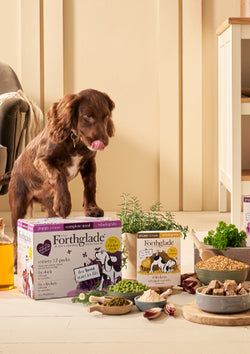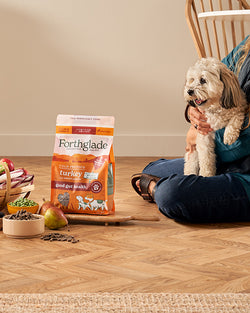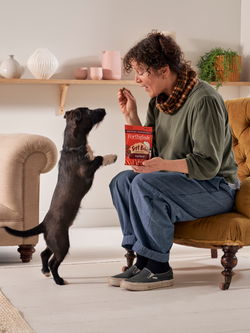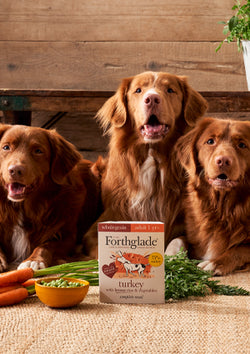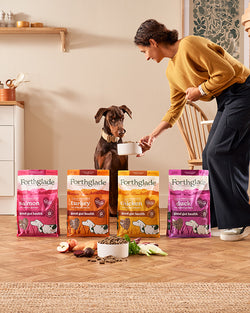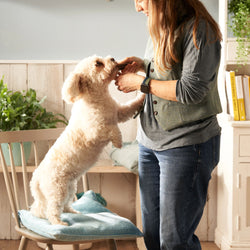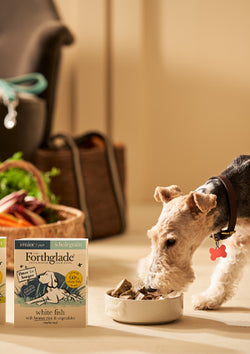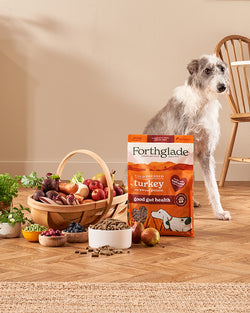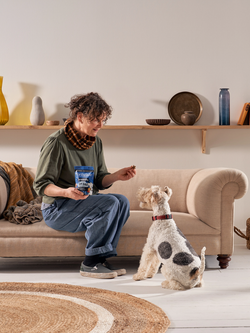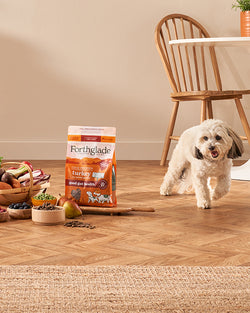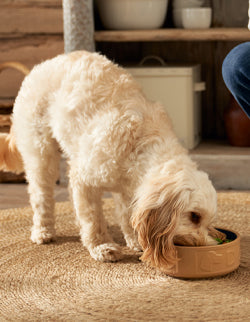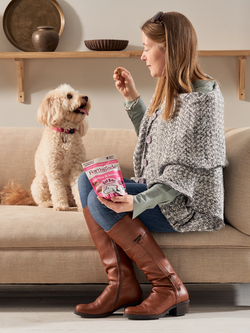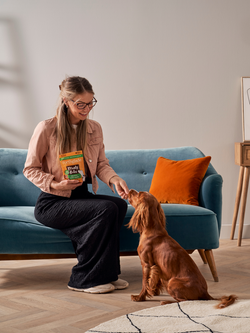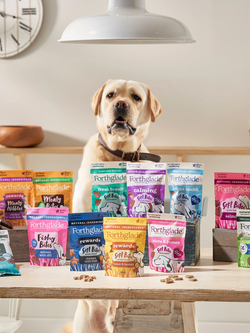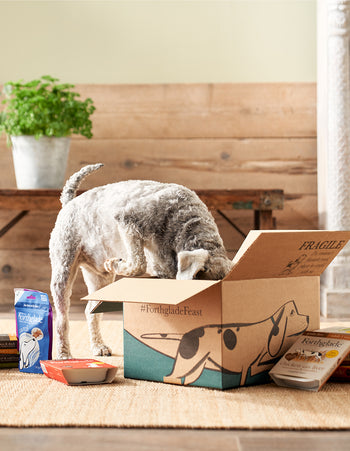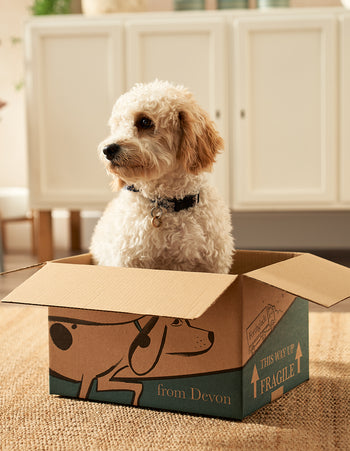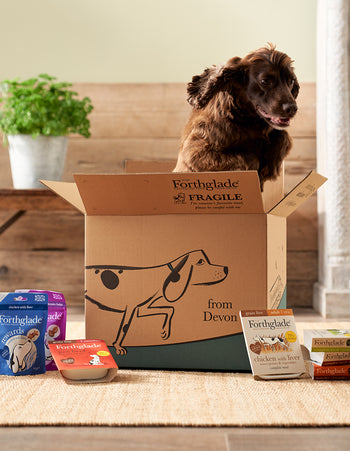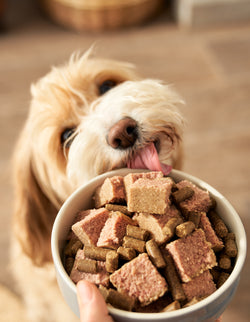If your dog hasn’t had a normal bowel movement in a day or two, it might be time to look a little closer at what’s going on inside.
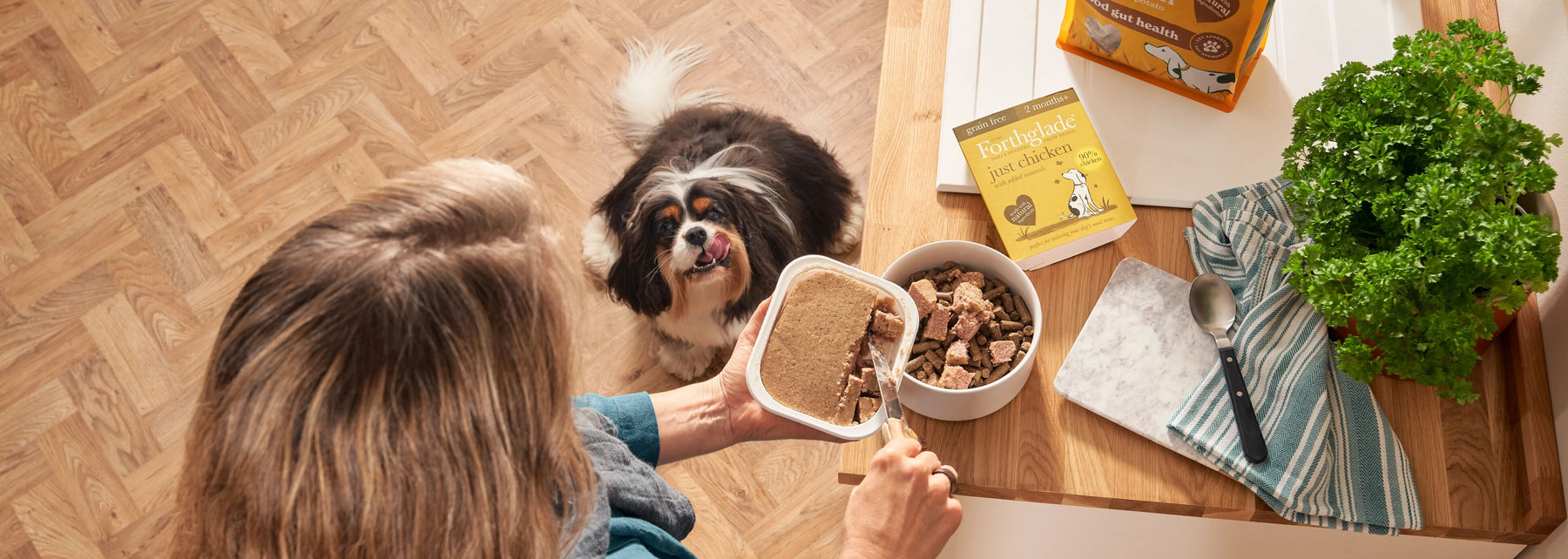
What to Give a Constipated Dog to Keep Them Regular
When most dog owners think of digestive problems, they often worry about loose stools or dog diarrhoea. But constipation can be just as uncomfortable for your pup and just as important to address. In this article, we’ll explore what to give a constipated dog, why it happens, and how to treat it safely.
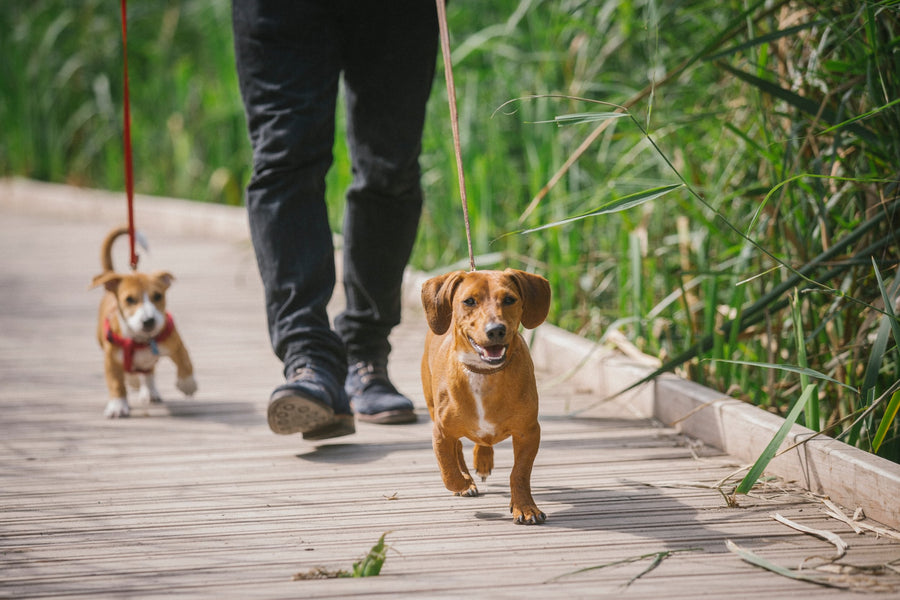
Why is my dog constipated?
There’s no single cause of dog constipation, a number of lifestyle, dietary and medical factors can contribute.
Common culprits include:
• Lack of fibre in their diet
• Dehydration
• Lack of exercise
• Eating something they shouldn’t (like bones or hair)
• Stress or anxiety
• Blocked anal glands
• Side effects of medication
• Age (older dogs may be more prone)
• Underlying medical conditions

Dog constipation symptoms
Wondering if your dog might be constipated?
Look out for these signs:
• No bowel movement for 24 hours or more
• Straining or crouching with no results
• Hard, dry stools when they do go
• Whining or discomfort when trying to poop
• Loss of appetite
• Lethargy or general discomfort
Scooting or licking around their back end
How to treat constipation in dogs
Fortunately, there are plenty of gentle ways to help your dog get back to regular bathroom habits. Here’s what to give a constipated dog, and how to support their digestive system at home.

Make sure your dog drinks plenty of fresh water
One of the most common causes of constipation is dehydration. Always make sure your dog has access to fresh, clean water, especially after walks and meals. You can also add wet dog food to their diet for extra moisture.

Add more fibre to their diet
Just like humans, dogs need fibre to keep things moving. Try swapping to a wholegrain diet or adding dog-safe fibre sources like pureed pumpkin . Pumpkin is gentle on the tummy and can soften stools without causing diarrhoea.

Try a sensitive diet
If constipation is an ongoing issue, it could be down to their current food. Some ingredients may be too rich or hard to digest. Switching to a sensitive stomach dog food can help ease digestion and keep things moving more comfortably.

Offer small, frequent meals
Feeding your dog smaller portions throughout the day rather than one or two big meals can reduce strain on the digestive system and keep food moving through at a healthier pace.

Increase their exercise
Feeding your dog smaller portions throughout the day rather than one or two big meals can reduce strain on the digestive system and keep food moving through at a healthier pace.
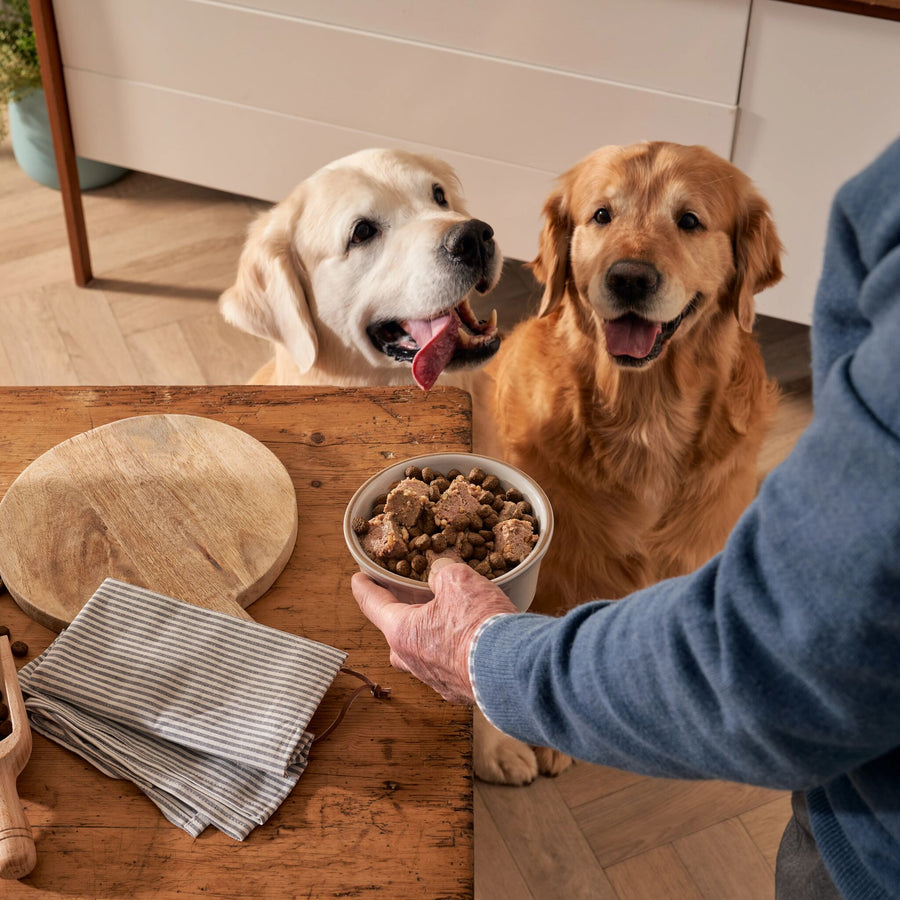
What not to do
It can be tempting to reach for a quick fix, but some well meaning remedies can actually do more harm than good.
Here’s what not to do:
• Don’t give your dog human laxatives, they can be dangerous
• Avoid enemas unless specifically instructed by your vet
• Don’t give them mineral oil without veterinary advice
• Avoid feeding bones or tough chews that might worsen blockages
• Don’t delay seeking help if your dog’s symptoms persist

When to see a vet
Most cases of constipation clear up quickly with the right care.
However, there are times when you should call your vet:
• Your dog hasn’t pooped in more than 48 hours
• They appear to be in pain when trying to pass stool
• You notice vomiting, bloating, or unusual behaviour
• There’s blood in their stool
• They seem lethargic or disinterested in food
• Constipation becomes a regular issue
Your vet may want to do a physical exam or run tests to rule out underlying conditions like blockages or gland issues.
The Takeaway
Constipation in dogs is uncomfortable but it’s also manageable with the right care, diet and attention. Whether it’s boosting fibre, encouraging hydration, or switching to a sensitive stomach dog food, there are plenty of natural ways to help. Remember, a big part of maintaining regular bowel movements is feeding your pup a nourishing, gut-friendly diet.
Explore our full range of natural dog food, packed with wholesome ingredients to help your dog feel their best inside and out.




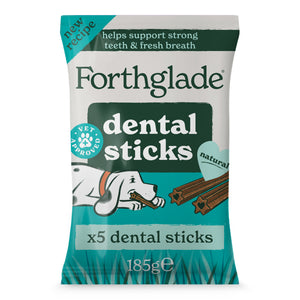
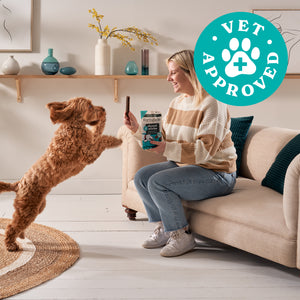
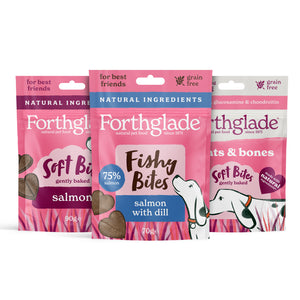
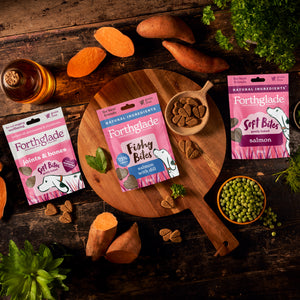


 FAST & FREE DELIVERY ON ORDERS £40+*
FAST & FREE DELIVERY ON ORDERS £40+*
 SUBSCRIBE TO SAVE 10% OFF EVERY ORDER
SUBSCRIBE TO SAVE 10% OFF EVERY ORDER
 OVER 13,600 5 STAR REVIEWS
OVER 13,600 5 STAR REVIEWS


